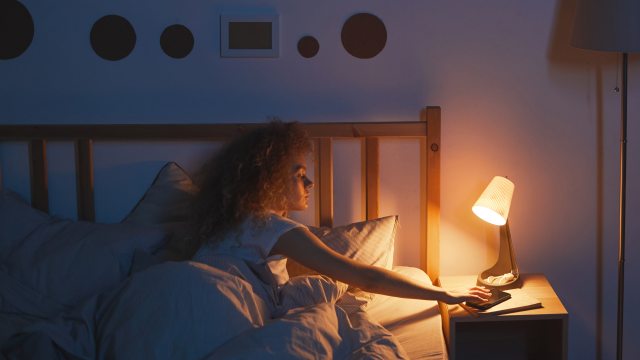Rest and peace of mind: The link between sleep and mental health

Like gas for your car, sleep is the fuel your brain needs to function well.
A good night’s rest can make a big difference after a long day, but did you know that your sleep patterns also can affect your broader mental health? There is a strong link between the two. Research shows that 50 to 80% of people with mental health concerns also have sleep difficulties.
“Good sleep and mental health are closely related,” says Marlene E Dietrich, MD, medical director of PeaceHealth’s Sleep Center in Vancouver, Washington. “Poor sleep can greatly impact our mental health, and depression, anxiety and other conditions can lead to difficulty sleeping.”
To develop better sleep habits, you may want to consider making a few changes. These could include adjusting the light or setup of your bedroom, doing relaxation exercises, sticking to a schedule and avoiding certain foods.
How are sleep and mental health related?
Sleep is your mind’s time to rest and recharge. Just like a car needs gas to run, your brain needs sleep to work at its full potential. Poor sleep quality tends to make you feel more sad, irritable, stressed and angry. It’s also related to mental health issues, including the risk of suicidal ideas or behaviors. Untreated sleep apnea can also negatively affect mood and memory and is linked to an increased risk of dementia.
When we sleep, our brain activity goes through several stages that are essential in allowing different parts of the brain to rest. The brain evaluates and stores your thoughts and memories, and a lack of sleep harms this process. REM (rapid eye movement) sleep helps your brain process emotional information. It’s essential for functions like memory, learning and creativity. Delta sleep (deep sleep) is also important for brain function and memory, as well as for regulating your metabolism, which can make you less tired.
Are you getting enough sleep?
The average adult needs seven or more hours of sleep to support good health. Nearly 40% of Americans get less than that, though. How do your sleep habits compare? Take our sleep quiz for a deeper look at your patterns. If you’re concerned about your results, reach out to your primary care provider or make an appointment at one of PeaceHealth’s Sleep Centers.
Tips to improve your sleep habits
“Take a look at your sleeping habits and patterns,” says Dr. Dietrich. “Stress reduction or mindfulness exercises like deep breathing, stretching or yoga can help relax your body and decrease anxiety, allowing you to fall and stay asleep.”
Consider what you can do to have better sleep habits. The following tips can help you reduce sleep disruptions.
- Stick to a consistent sleep schedule: Try to wake up at the same time, even on weekends.
- Have a set bedtime: Choose a time that is early enough for you to get at least 7 hours but don’t go to bed unless you are sleepy.
- Create a relaxing bedtime routine: Unwind by gently stretching, spending a few minutes meditating, listening to soothing music, focusing on your breathing or taking a warm bath or shower.
- Avoid electronic devices before bed: Scrolling through your phone or watching TV may be an easy way to unwind, but it stimulates the brain. This can keep you from falling asleep. Try turning off your screens for at least 30 minutes before going to sleep. If your brain doesn’t shut off, try listening to relaxing sounds (white noise, nature sounds, soft music, a meditation app or a “sleep story”, for example).
- Avoid caffeine late in the day: Caffeine stays in our systems for hours, depending on the amount consumed. Try to cut back at least 6 hours before bedtime.
- Limit alcohol before bed: Alcohol may make you sleepy, but it reduces your sleep quality. This can make you feel sluggish the next day.
- Exercise regularly: 30 minutes of aerobic exercise per day can improve your sleep quality and overall health. Try not to exercise close to bedtime, though. It could increase your energy and body temperature, making it hard to wind down.
- Make your sleep environment work: A bedroom temperature between 60 F and 67 F is comfortable for most people. Use curtains to block out extra light and earplugs for sounds that could disrupt your sleep.
When to talk to your doctor
There is a close tie between depression and insomnia. People who have trouble sleeping have a higher chance of developing depression. And 75% of people who have depression also have difficulty sleeping.
If you are concerned about either of these issues, PeaceHealth offers many resources to help. Talk to your primary care provider to see if our sleep studies, counseling or behavioral health services are right for you.






